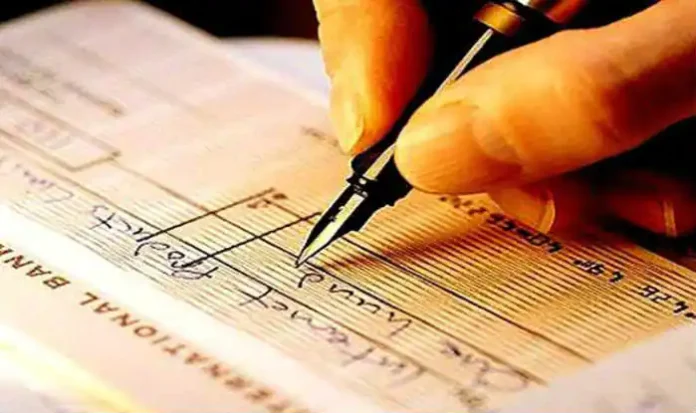Court imposed fine in cheque bounce case: In the first case, the local court of Mangaluru has imposed a fine of Rs 3,03,000 on Naveen Acharya, the owner of ‘V-5 Tech Engineering Works’ of Brahmavar and a resident of Mangaluru. Naveen had issued a cheque after buying sports equipment from Prime Sports Company here. But this cheque bounced. The court has said that if the fine is not paid, the culprit will have to undergo a sentence of 3 months.
What is the first case
In the first case, the local court of Mangaluru has imposed a fine of Rs 3,03,000 on Naveen Acharya, the owner of ‘V-5 Tech Engineering Works’ of Brahmavar and a resident of Mangaluru. Naveen had issued a cheque after buying sports equipment from Prime Sports Company here. But this cheque bounced. The court has said that if the fine is not paid, the culprit will have to undergo a sentence of 3 months.
This is the second case
In the second case, the court has imposed a fine of Rs 1,02,000 on a person named Nizamuddin in a case of cheque bounce. In this case, Pawan Kumar of Charmadi village had filed a complaint of cheque bounce. The court has said that if he does not pay the fine, he will have to undergo six months imprisonment.
Know the reasons for cheque bounce
There can be many reasons for cheque bounce. These include no or less balance in the account, mismatch of signature, mistake in writing the word, mistake in account number, overwriting, expiry of the cheque, closure of the account of the person who issued the cheque, suspicion of a fake cheque, absence of company seal on the cheque, etc.
Banks charge penalty on cheque bounce
Banks charge penalty on cheque bounce. The penalty has to be paid by the person who issued the cheque. This penalty can vary according to the reasons. Every bank has fixed different amounts for this.
Cheque bounce is considered a crime
In India, cheque bounce is considered a crime. According to section 138 of Negotiable Instrument Act 1881, bouncing of cheque is a punishable offence and there is provision of two years imprisonment and fine or both. However, this happens only in the situation when there is not sufficient balance in the account of the cheque giver and the bank dishonours the cheque.
When does the case of litigation arise?
Not so, as soon as the cheque is dishonoured, a case is filed against the payer. When the cheque bounces, the bank first gives a receipt to the creditor, in which the reason for the cheque bouncing is mentioned. After this, the creditor can send a notice to the debtor within 30 days. If there is no response from the debtor within 15 days of the notice, then the creditor can go to court. The creditor can file a complaint in the magistrate’s court within a month. Even after this, if he does not get the money from the debtor, then he can file a case against him. If found guilty, a jail term of up to 2 years or a fine or both can be imposed.
Most Read Articles:
- 8th Pay Commission: Salary of government employees will increase according to this formula, know this formula
- CGHS Cardholder: Big news for central government employees and pensioners! CGHS cardholders will get these medical devices faster, apply like this
- Credit Card Link UPI: Link your credit card to UPI from home, know step-by-step guide


